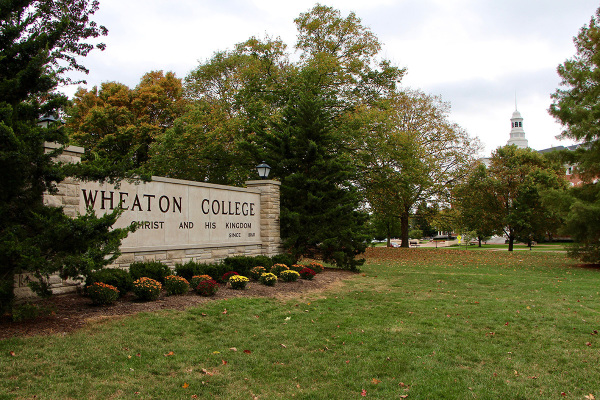Conservatives Fear Gay Outcry Downplays MRSA Outbreak
A recent medical report about a new infection spreading among sexually active gay men has riled the gay community who fears another episode of the HIV/AIDS stigma.
"The way they keep targeting gays as if gays alone are responsible for it, it's like HIV/AIDS all over again," said Colin Thurlow, 60, who is gay and lives in San Francisco, according to The New York Times. "And we're sick and tired of it."
A study, released last week by researchers at the University of California at San Francisco, showed that men who have sex with men are "many times more likely than others" to acquire a new variety of staph bacteria – also known as MRSA USA300 – that is highly resistant to antibiotics.
Gay men's health advocates have criticized the media and conservative Christian groups for singling out the gay community when reporting on the study, calling it stigmatizing and homophobic.
Several news publications released dramatic headlines including an Australian newspaper's "Flesh Eating Bug Spreads Among Gays" and some have called it "the new HIV." And conservative groups have cited the study to affirm "homosexual behavior is unhealthy," as stated by Peter LaBarbera, president of Americans for Truth.
The conservative Concerned Women for America, however, rejected the accusation that they were calling this a "gay disease."
"They're saying that we're saying that this is the new HIV ... gay disease," said Matt Barber, policy director of Concerned Women for America, on Thursday. "We never said that. We simply reported what this study has reported – that there's an outbreak among certain segments of the homosexual community," he added.
The highest concentrations of infection by the so-called superbug were found in and around San Francisco's Castro district. The study estimated that 1 in 588 residents living within the Castro neighborhood 94114 ZIP code area is infected with that variant. Also, men in AIDS clinics in the city who had a history of having sex with men were about 13 times more likely to be infected than other patients.
CWA announced this week it will be inviting homosexual groups to put aside ideological differences with CWA and work together to help curb the spread of the potentially deadly strain of staph infection.
Other Christians, however, do not agree with the approach of CWA and other conservative groups to this issue. Dr. Warren Throckmorton, professor of Psychology at Grove City College, wonders why the groups aren't also targeting the porn industry, spring break activities and mardi gras considering MRSA is also being spread by heterosexual contact.
While Throckmorton believes it's good to give warning to groups at greater risk of infection, he said the latest study to him is "just a warning about sexual purity" in general.
Referencing a comment made on his blog, Throckmorton said, "When you single out one group, the unintended consequence is people in other groups would say 'it's not a health hazard for me' when it's the behavior that's the issue, not the social group identified with."
While MRSA has been around for years, staph infections had never been linked to sexual activity until last year. And the latest study found a new variant of the bacteria spreading rapidly among this particular population of gay men in San Francisco.
The scientists did not address the cause of the increased risk among gay men, but suspect that sexual risk behaviors, such as multiple sex partners, sex parties and illicit drugs, play a significant role. Up to 40 percent of infections in the study occurred in the buttocks and genitalia.
They said they are "very concerned" about a potential spread of this strain into the general population since the drug resistant microbe can spread through casual skin-to-skin contact in addition to sexual contact. Reports of the bug are also turning up in Boston, New York and Los Angeles.
But following the homosexual outcry, authors of the study are expressing regret for any information being misrepresented despite overarching concern for the public's health.
"We deplore negative targeting of specific populations in association with MRSA infections or other public health concerns," said a statement released by the San Francisco university.
Dr. Henry Chambers, one of the report's authors and a professor of medicine at the university, said they were looking at this case from a scientific point of view "and not projecting any political impact," according to the NY Times.
But some conservatives expressed concern that gay political activists would place political correctness over the health of their own community and they say follow-up media stories are now downplaying the findings.
"This is a clear example of politicizing science," said Bob Knight, director of the Media Research Center's Culture and Media Institute. "From what I've seen so far the media are not reporting the full story and they're allowing the gay activists to beat the drum again."
"The news is still so filtered through a pro-homosexual viewpoint that the public doesn't know the extent of the epidemics," he added.
Family Research Council president Tony Perkins also raised concern saying, "Unfortunately, homosexual activists are more likely to view the study through the lens of political correctness, which could blind them to the level of inherent risk of certain behaviors with serious implications for them and the community at large."
While gay activists have denounced the conservative groups for zeroing in on the gay community, CWA's Barber said they are not focusing on people who identify as homosexual but instead focusing on the behaviors that the study focused on.
"We lament the disease and the negative consequences of this lifestyle (high-risk behaviors)," said Barber. "We're commanded to be the salt and the light and share the truth with people not because we're against you but because we care for you."
Scientists say soap and water may be the most effective way to prevent skin-to-skin contact transmission, especially after sexual activities.






















